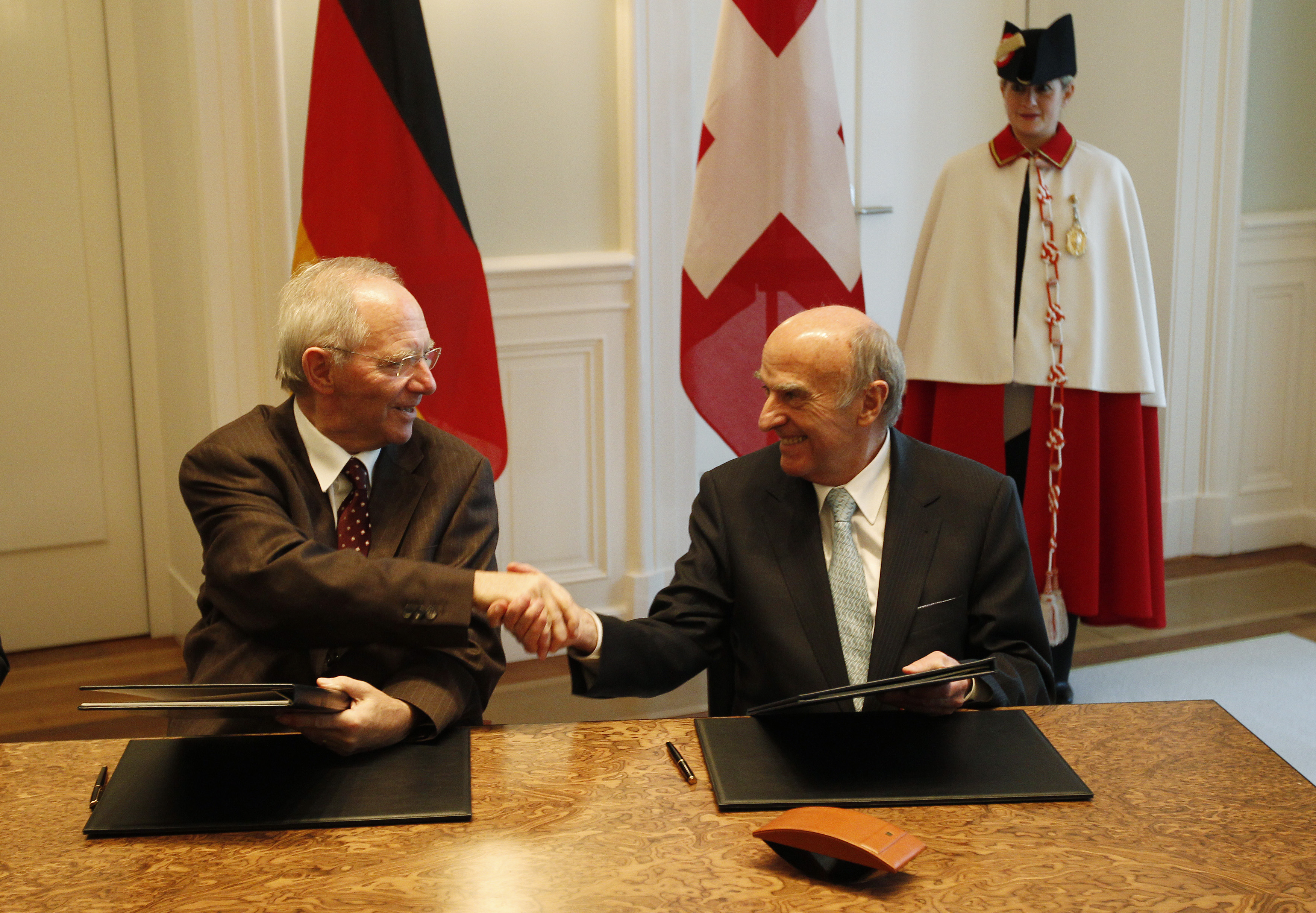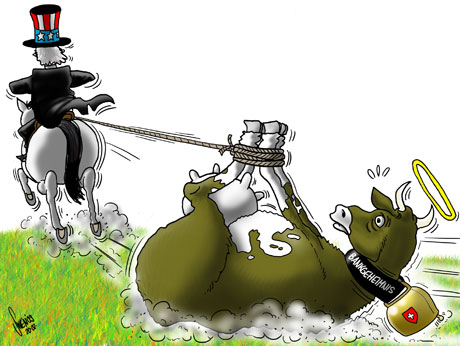Has Switzerland saved banking secrecy?

Barely two years ago Swiss banking secrecy appeared to be on the rocks with little prospect of it surviving a battering from the United States and Europe.
The impending negotiations of tax accords with Britain and Germany now appear to have lifted the pressure from the Swiss financial centre’s most prized asset. But to what extent has the threat really been lifted?
Konrad Hummler, head of Switzerland’s oldest private bank Wegelin, believes that talks with the two powerful countries – which centre on withholding tax as opposed to an automatic exchange of tax information – will leave banking secrecy intact.
“The protection of privacy through banking secrecy has been strictly separated from the issue of taxation,” he told the Tages-Anzeiger newspaper. “Banking secrecy has therefore been strengthened because it is no longer under suspicion of protecting injustice.”
The perceived injustice was that the anonymity of Swiss banking clients was preventing Britain, Germany and other countries from obtaining information from Switzerland during tax evasion investigations.
Now the German and British authorities appear to accept Swiss banks collecting back-dated and future taxes from offshore accounts and self-policing tax evasion in Switzerland, instead of offering the names and data of such clients.
“Abandoning fight”
Writing on his blog this week, Richard Murphy of the watchdog group Tax Research UK accused Britain of “abandoning the fight against tax havens”.
“No indication is given as to how these accounts are to be regularised,” he went on. “Indeed, there is no prospect that they can be because the £40 billion [SFr63 billion] or so of evaded assets will not have to be declared by name by the Swiss. In that case there is no prospect of UK interest or penalties being charged.”
But before Swiss bankers can breathe a collective sigh of relief that their cherished secrecy has been saved, the European Union warned that the proposed deals with Germany and Britain would not be allowed to supercede EU demands for an automatic exchange of tax information.
“We have assurances from Germany and the United Kingdom that they are totally behind our aim of achieving automatic exchange of information within the EU, and of promoting as broad a system of information exchange as possible at an international level,” said Emer Traynor, spokeswoman for the EU commissioner for taxation, Algirdas Semeta.
“If there is a conflict, European law always takes precedence over bilateral agreements,” she added.
Houdini act
This would be bad news for Switzerland as an automatic exchange of tax information would almost certainly involve an assault on the anonymity of account holders.
But despite this threat, the tide does appear to be turning in Switzerland’s favour since the country found itself under siege at the start of last year. Back then, Swiss bank UBS had admitted aiding and abetting US tax evaders while the Swiss authorities had been forced to promise to renegotiate tax treaties in the face of unrelenting international pressure.
Swiss financial historian Tobias Straumann of Zurich University believes that unlike in the US where offshore banking has died, Switzerland has once again pulled off a Houdini act in Europe.
He pointed out that Swiss banking secrecy has come under previous attacks without any being able to land a knock-out blow.
Demand for tax evasion
Just like the past international complaints regarding Holocaust-era stolen gold and money laundering, the current tax evasion debate has clipped the wings of banking secrecy without breaking it apart.
“Tax evasion is a much more complicated issue than money laundering because there is a much broader share of assets involved. This time the problem was not limited to third world countries,” Straumann told swissinfo.ch. “But if you look at the historical pattern, each time there has been a solution.”
Straumann believes that Germany and Britain have compromised more than the US because of their proximity to Switzerland.
“There will always be a demand for tax evasion, and it’s just a question of how countries handle it,” he told swissinfo.ch. “Europe has been tolerant in the past because our neighbours know that untaxed assets will just move further abroad if they stop them coming to Switzerland.”
Time alone will tell how the German and British tax treaties develop and how the EU reacts, but many observers in Switzerland believe that the worst of the crisis has now passed.
Banking secrecy was enshrined in Swiss law in 1934. For the past 18 months Switzerland has been under continuous attack for helping foreign tax evaders hide their assets.
The OECD placed Switzerland on a “grey list” of uncooperative tax havens in April 2009. The Swiss were removed in September after renegotiating more than 12 double taxation treaties, but they have refused to automatically transfer information to tax investigators without proof of crimes.
Several countries, including Italy, France, Britain and the US, launched tax amnesties last year in an effort to repatriate assets from tax cheats.
Switzerland was particularly annoyed at the aggressive Italian amnesty that saw surveillance and tailing of cross border suspects entering Switzerland.
The most damaging tax evasion case involved the activities of UBS bank in the US. In February 2009, UBS was fined $780 million after admitting helping US citizens dodge taxes. It also handed over data of 285 account holders.
In September, the Swiss government agreed to transfer the details of 4,450 UBS clients to the US – in effect violating Swiss banking secrecy to prevent a ruinous court case for UBS.
Also last year, a former employee of the HSBC private bank in Geneva ran away with client data that he handed over to the French authorities.
Several CDs of stolen Swiss banking data have been bought by the German authorities, some of which were passed on to other countries.

In compliance with the JTI standards
More: SWI swissinfo.ch certified by the Journalism Trust Initiative





You can find an overview of ongoing debates with our journalists here. Please join us!
If you want to start a conversation about a topic raised in this article or want to report factual errors, email us at english@swissinfo.ch.